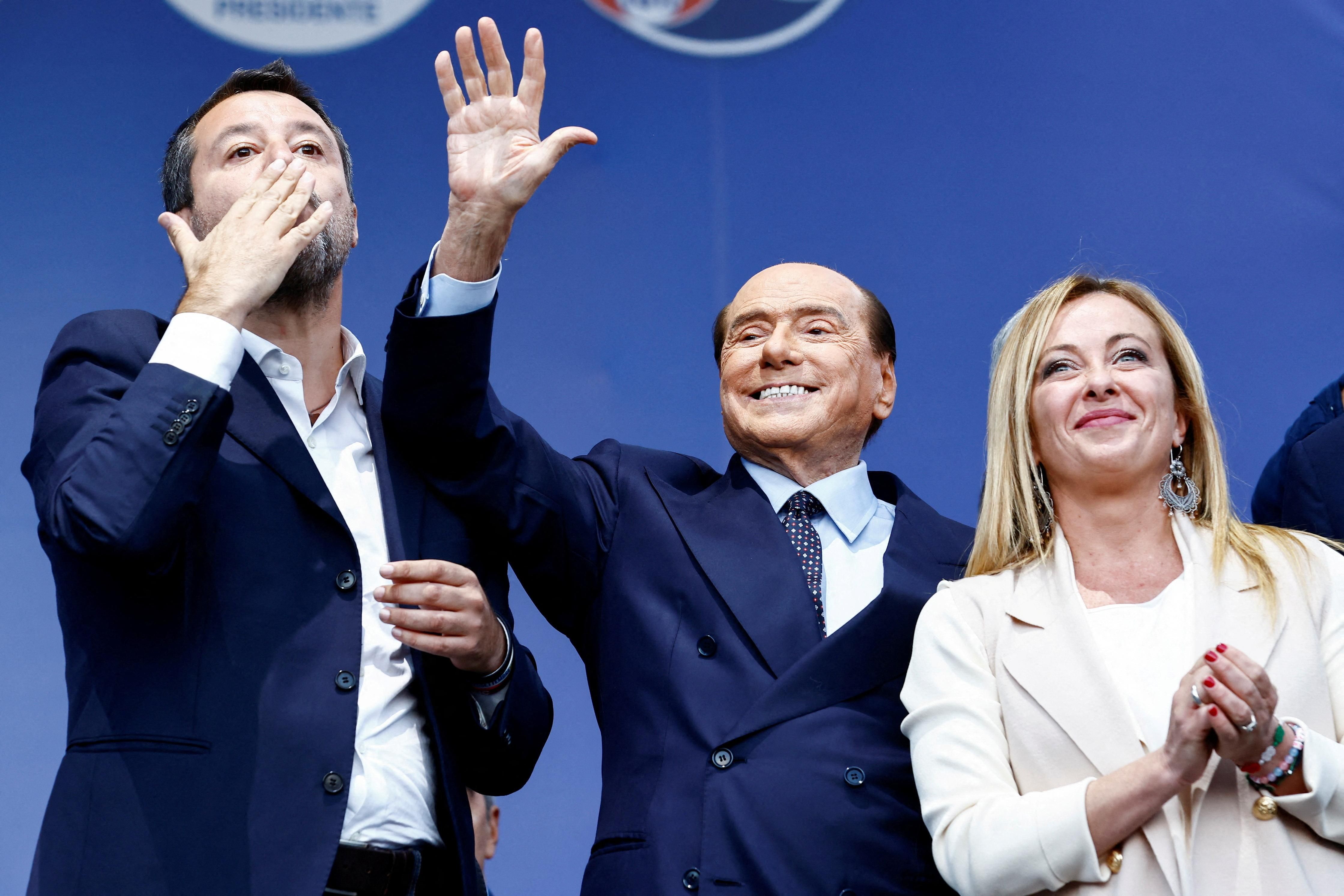What We're Watching: Italian election, Chinese anti-corruption drive, Lebanese bank shutdown
Italy votes!
Italians head to the polls on Sunday and are likely to elect Italy’s first far-right leader since World War II. Giorgia Meloni, 47, who heads the Brothers of Italy Party (which has neofascist roots) is slated to become Italy’s next PM. Polls indicate Brothers will win about a quarter of the vote, while her three-party coalition, including Matteo Salvini’s far-right Lega Party and Berlusconi’s Forza Italia, is projected to secure around 45%. Four years ago, Brothers – established in 2012 – reaped just 4% of the vote, but it has benefited recently from the left’s implosion as well as Meloni’s refusal to back the centrist Draghi government, which collapsed this summer, making her the most formidable opposition figure (Salvini and Berlusconi backed Draghi). Italy has convoluted voting rules but will be voting on 400 seats in the Chamber of Deputies (lower house) and 200 seats in the Senate – the winning coalition needs a majority in both. Meloni aims to dilute the EU’s power over Italian affairs, though she believes Rome must preserve close ties with Brussels, and she supports EU and NATO efforts to contain Russian aggression. Read this primer to learn more about what Meloni does – and doesn’t – stand for.
Xi's war on corruption — and disloyalty
A Chinese court on Thursday gave one of Xi Jinping’s former anti-corruption top dogs a death sentence that will be commuted to life in prison after two years for ... bribery. Fu Zhenghua, a former police chief and justice minister who led multiple probes under Xi's former anti-graft czar, pleaded guilty in July to taking $16.5 million in bribes, presumably in exchange for the commutation. The plot thickens: Fu was busted amid a wider crackdown on a ring of dirty ex-cops led by Sun Lijun, who’s awaiting his own sentence for bribery. But as far as the ruling Communist Party is concerned, their most heinous crime was setting up a political faction separate to Xi’s, which is why its members are getting hefty punishments. (Juicy tidbits of their case were featured in “Zero Tolerance,” a slick state-sponsored docuseries that celebrates the success of Xi's war on graft.) The timing is interesting too: in about three weeks, the CCP is holding its 20th Party Congress, where Xi is expected to get a precedent-shattering third term as secretary-general. The party has a penchant for taking down dirty officials ahead of big dates, but going after a clique of cadres disloyal to Xi sends a clear message: don’t cross the big boss.
Unbanked Lebanon
Lebanese can’t catch a break. They’ve had their dollar savings withdrawals strictly limited since the Lebanese pound dropped in late 2019. And now, two weeks after a woman held up a bank to withdraw part of her own savings to pay for her sister's cancer treatment, inspiring copycat heists, the banks have simply shut. Citing security concerns, the country’s banking association says all banks will remain closed indefinitely. ATM services in pounds are available, but the shutdown is expected to make things even worse for the 80% of Lebanese who already struggle to pay for their daily needs with the weakened currency amid sky-high inflation. This is just the latest twist in Lebanon’s descent into economic collapse, which started three years ago. The government, meanwhile, keeps giving the International Monetary Fund the runaround on the economic reforms required to unlock a $3 billion bailout. One of the conditions is to give small depositors access to their savings.
This article comes to you from the Signal newsletter team of GZERO Media. Sign up today.
